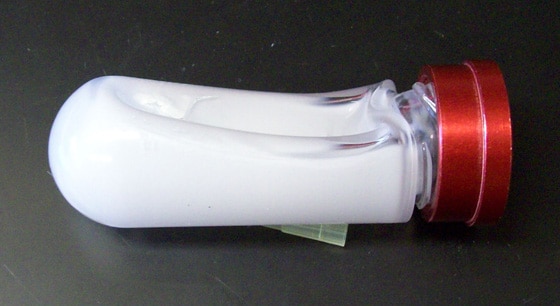While almost all of you are probably familiar with the power of eBay to bring you everything from concert tickets to electronics to your very own Batmobile, you may not have realized that the world’s largest garage sale also has quite a collection of laboratory equipment. I’ve been turning to this source for equipment for several years now, and in this post I’ll fill you in on some of the ins and outs of buying lab equipment off eBay.
Where do I look?
Of course you can search for whatever you want, but if you want to surf around and see what’s available, click on the ‘Business & Industrial’ category, then go to ‘Healthcare, Lab & Life Science’, and from there you will probably want the ‘Lab Equipment’ category, but ‘Lab Supplies’ might also peak your interest. If you have ever really scoured eBay for a particular item, you probably already know that sometimes the sellers don’t list their item in the correct categories. So if there is something in particular you want, don’t just browse the category that it should be in, but search for it, and search for it in a couple different ways, as I’ve found eBay’s search engine to be a little finicky (Bio-Rad is different than BioRad, et cetera).
What is it good for?
The most obvious use for eBay is to purchase second hand equipment on the cheap. It may be that the piece of equipment you want would be nice to have, but not so essential that it warrants the bite it would take out of the lab budget, or it may be that the lab is running on fiscal fumes right now, but needs to replace a piece of equipment to maintain productivity (a scenario that is sadly all-to-common right now). Outside of research labs, eBay might also be a viable option for teaching labs, where it seems money is always an issue. For lab heads, eBay might also be a reasonable way to equip empty benches in the lab, as patience can be rewarded with some phenomenal buys.

I have found that certain items, like heat blocks and waterbaths, can be found in nice shape and at good prices, even for models that are only a couple of years old. Other items, such as microcentrifuges and electrophoresis power supplies, are more difficult to find in modern forms, and finding one at a good price is even rarer. Micropipettors are a real gamble – you can almost always find them at a third to a quarter of retail prices, but repairing a poorly maintained micropipette can easily chew up any money that you saved and then some.
The other area where eBay shines is the availability of old equipment, or parts for old equipment. In my current lab we have an older fluorimeter that is due to be replaced, but is expensive enough that it cannot be done mid-grantcycle. When the power supply went out, we discovered that the fluorimeter was no longer supported, and the company no longer stocked parts for it. However, we did find somebody on eBay selling just what we needed. Admittedly, the selection available on eBay at any given point in time isn’t so great that you can count on finding the parts that you need, but it does provide one more place to look when you are in a bind.

Who to buy from?
There is inherent risk in buying used lab equipment. You can minimize the risk by employing some of the common eBay rules: don’t buy from people with low feedback scores, a low number of sales, or strict ‘as-is’ or ‘no return’ policies. Another aspect to keep in mind is the seller’s experience with lab equipment, which is usually apparent in the ad listing. If the ad for a water bath reads “the unit turns on and heats up,” then that likely isn’t as experienced a seller (with lab equipment) as one who states “the unit powers up and maintains temperature (37C) overnight.” The second unit is much less of a risk than the first. You can also gauge the experience of the seller by looking at their current listings, or by looking at their most recent sales to see how much lab equipment they deal with. Don’t be afraid to ask questions before you buy. If you do get a piece of equipment that is broken, you should contact the seller immediately, since they are likely to accept the unit back or refund your money to convince you to not leave negative feedback on their account. There are some sellers that specialize in lab equipment and have large eBay stores that you can browse – they are a very safe bet to buy from, but they are also very aware of the value of what they are selling and price their items accordingly.
How can I buy off eBay?
This is what you should ask your boss and your lab’s financial administrator. Often you can buy things yourself and the lab can reimburse you for the purchase, but different universities have different rules about this, so check first. Sometimes the lab or department will have a person who can buy the item directly from eBay. Before you do anything, though, talk to the lab head and make sure they are comfortable with purchasing used equipment and the risks that go along with that.
What are your experiences of buying equipment from eBay, or any other non-standard source for that matter?







